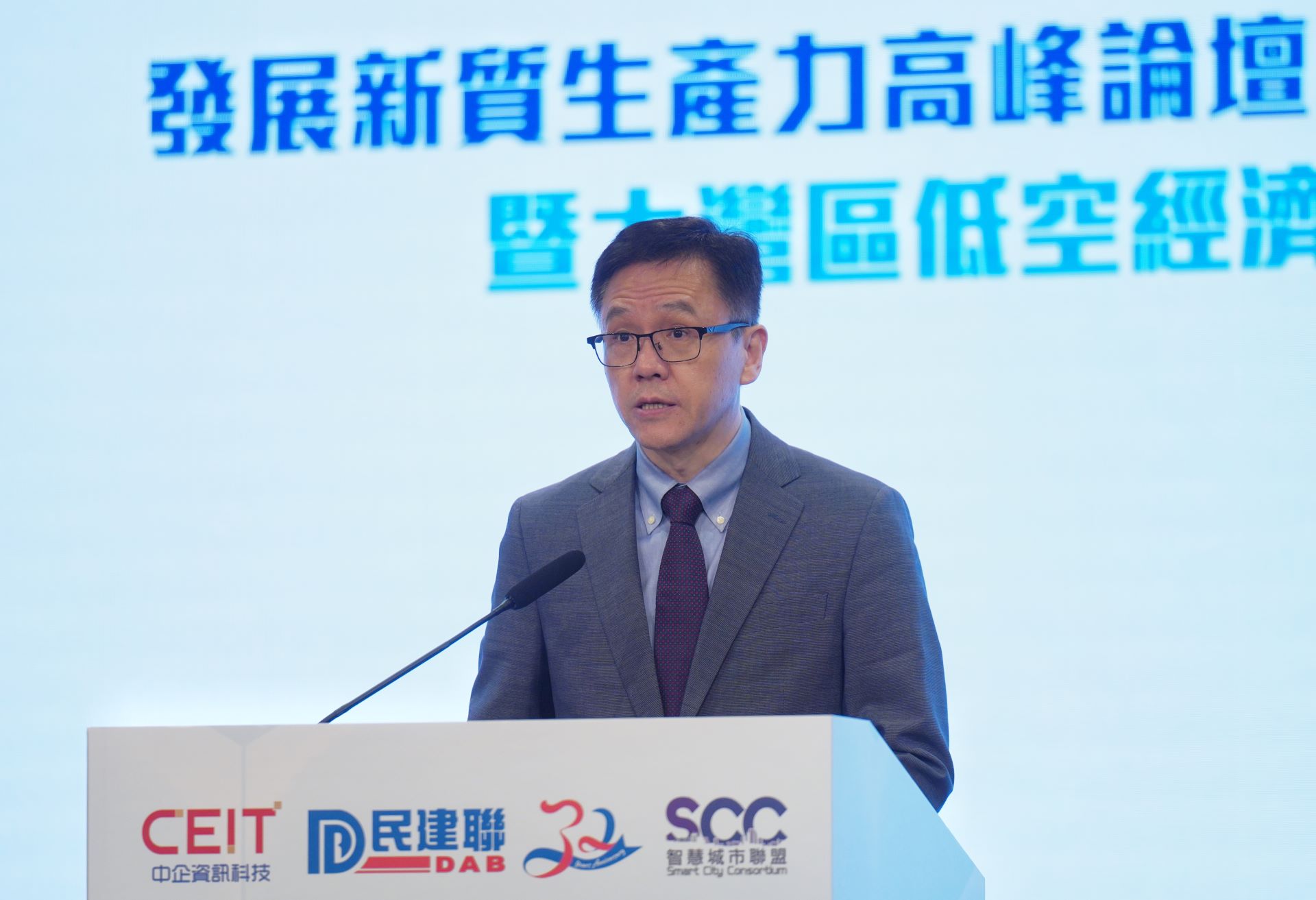
The Hong Kong Special Administrative Region’s transport chief revealed on Monday that the city is exploring feasible pilot projects in the low-altitude economy and cross-border exchanges with the Chinese mainland amid the nation’s drive to promote the next-generation flight industry.
Featuring manned and unmanned aerial activities in the airspace below 3,000 meters, the low-altitude economy has become a buzzword since mainland officials marked it out as a new catalyst against the country’s patchy economic landscape. Cities in Guangdong province, including tech powerhouse Shenzhen, are now at the forefront of the low-altitude economy, with companies like drone makers DJI and Autel Robotics leading the pack.
ALSO READ: Hong Kong can succeed in developing a thriving low-altitude economy
“As one of the key cities in the Guangdong-Hong Kong-Macao Greater Bay Area, Hong Kong will fully cooperate with national development strategies to promote the low-altitude economy,” Secretary for Transport and Logistics Lam Sai-hung told the New Quality Productive Forces Summit.
Citing the complex geographical environment and high population density as difficulties, Lam said a key part of the government’s effort is progressively rolling out pilot projects for low-altitude flight activities.
Meanwhile, the city is also actively engaging with mainland departments and operators conducting on-site inspections to understand the latest developments in the mainland and discuss arrangements for managing unmanned aerial systems, Lam said.

Addressing the same event, Secretary for Innovation, Technology and Industry Sun Dong said the bureau will fully support the Transport and Logistics Bureau in promoting the city’s low-altitude economy by offering technological support and exploring new application scenarios.
Hong Kong’s ramped-up efforts align well with the aerial businesses’ vast growth potential. Morgan Stanley forecasts the next-generation flight industry will become a trillion-dollar business globally by 2040.
ALSO READ: China's booming low-altitude economy drives new growth
The market size of China’s low-altitude economy sector alone is projected to climb from over 500 billion yuan ($70.27 billion) last year to 2 trillion yuan by 2030, according to the Civil Aviation Administration of China.
Experts called on measures to build the GBA into a demonstration zone for cross-border low-altitude economic initiatives and alignment of domestic and international standards.
Hong Kong lawmaker Elizabeth Quat Pui-fan said that the government should establish interdepartmental working groups to collaborate with other cities in the GBA and implement the construction of cross-city low-altitude flight routes.
Quat, who is the founder and honorary president of the Smart City Consortium, also proposed the establishment of a leading group for the GBA to collectively plan the 11-city cluster’s low-altitude economic development, technological research, infrastructure, and standards.

Her suggestions came at the launch of the GBA Low-altitude Economy Alliance by the Democratic Alliance for the Betterment and Progress of Hong Kong, the city’s largest pro-establishment party.
Meng Shusen, chairperson of the Hong Kong Chinese Enterprises Association Information Technology Committee, said the alliance aims to deal with challenges including those in airspace management systems, breakthroughs in low-altitude aircraft applications, and industry chain integration.
Meng said the GBA should forge close academic ties among universities, research institutions, and industry partners in the research and development of drones and electric vertical take-off and landing aircraft, also known as flying cars. At the same time, she put forward an integrated platform for managing flight infrastructure, air-to-ground information, and big data.
READ MORE: Low-altitude economy poised for takeoff
Winnie Tang, founder and honorary president of the Smart City Consortium, said the low-altitude economy is a crucial step in developing Hong Kong into a smart city, where innovative technology helps enhance living standards, operational efficiency, and sustainability.
Tang highlighted the necessity of launching a sandbox for the low-altitude economy in her speech, saying it could help the region gather more data and feedback to manufacture safer low-altitude flight products more effectively.


